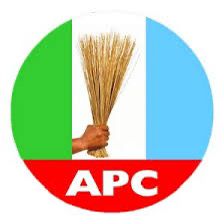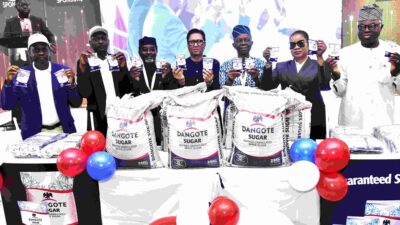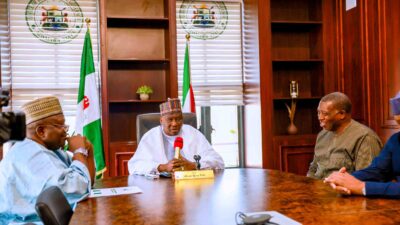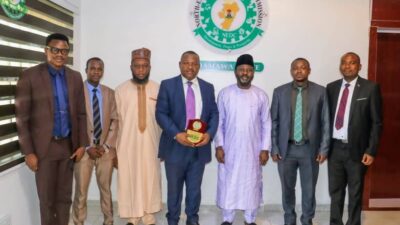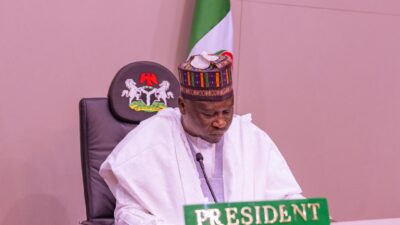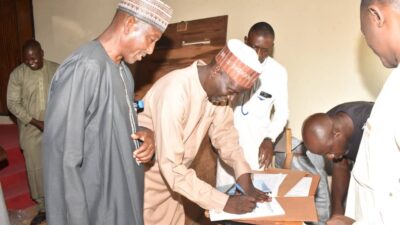By Muhammadu Isa Muhammadu
As of today, the All Progressives Congress (APC) controls three states in the Northeast, Borno, Gombe, and Yobe, while the People’s Democratic Party (PDP) controls three, Adamawa, Bauchi, and Taraba. There are strong indications that Taraba State Governor Agbu Kefas is warming up to defect to the APC.
All politics, they say, is local. As 2027 approaches, each state’s particularities and peculiarities will determine how the APC fares. Let’s examine each of the six states in the Northeast geopolitical zone.
Adamawa: Two factors will make or break the APC in the 2027 gubernatorial election, the party’s ability to manage internal crises and meeting the demands of the agitation from Adamawa Central to produce the governor.
Adamawa lost the 2019 and 2023 gubernatorial elections for one primary reason, internal party disagreements. In 2019, incumbent Senator Muhammadu Jibrilla Bindow of the APC lost because the Murtala Nyako group and the Aisha Buhari group worked against the APC. For example, Senator Abdulaziz Murtala Nyako of the ADC, alone polled 113,237 votes, more than 13% of the total, which could have secured victory for the APC, as Ahmadu Umaru Fintiri of the PDP won by a margin of just 40,166 votes. The same pattern repeated in 2023; Senator Aishatu Dahiru Binani of the APC narrowly lost because party members undermined her, handing incumbent Ahmadu Fintiri of the PDP a slim victory.
The agitation from Adamawa Central is weighty, according to political pundits. The zone holds nearly 40% of Adamawa’s voting population, has never produced a governor, has supported many individuals to win elections, and boasts numerous qualified candidates. Currently, three or more are in the limelight, Comrade Mustapha Salihu (APC National Vice Chairman, Northeast), House of Representatives member Aliyu Wakili Boya, and Ahmed Galadima Aminu (Executive Secretary of the Petroleum Technology Development Fund, PTDF). All three are highly qualified in their own rights, though pundits note that Aminu Galadima is very new to Adamawa politics. For the Adamawa APC, the buck stops with NSA Mallam Nuhu Ribadu and his handlers; any misstep could repeat the 2019 and 2023 episodes.
Bauchi: The APC in Bauchi can simply be described as a battleground among Muhammad Ali Pate (current Minister of Health), Ambassador Yusuf Maitama Tuggar (current Minister of Foreign Affairs), Senator Shehu Buba Umar (representing Bauchi South), and Alhaji Bala Wunti (former MD of NAPIMS).
Bauchi politics is unique in Nigeria due to its swinging nature; voters often change the party in power after eight years, as happened with Adamu Mu’azu, Isa Yuguda, and M.A. Abubakar since 1999. The NEPU legacy still runs deep, along with the Katagum-Bauchi factor and grassroots connections, which will impact whether the APC wins or loses the 2027 gubernatorial election.
Minister Muhammad Ali Pate has international connections and is well-educated, but his local ties are weak, Bauchi people nickname him “Wakilin Turawa” (the International agent). Pundits say Alhaji Bala Wunti has what it takes to be governor, but history shows the Bauchi APC suffers when picking newcomers; in 2023 Air Vice Marshal Saddique Abubakar emerged from nowhere, won the ticket, and was roundly defeated; in 2015 M.A. Abubakar, also a newcomer, won thanks to the Buhari tsunami and Bauchi-Katagum factor but couldn’t secure a second term in 2019. Tuggar is a seasoned politician, but his continued aloofness from locals may work against him.
Senator Shehu Buba Umar has several factors in his favor, all Bauchi governors since 1999 have come from Bauchi South, the Katagum-Bauchi factor plays to his advantage, and he has strong grassroots connections. Many see him as the only one capable of challenging an incumbent party and most politicians are with him. The APC in Bauchi and the presidency will likely tilt toward the senator, as he possesses most of the prerequisites to win the state for the APC.
Borno has been APC (and its predecessor ANPP) territory since 1999, with stakeholders maintaining one-party dominance. The governorship battle is likely between Ali Bukar Dalori, APC Deputy National Chairman, North and Senator Kaka Shehu Lawan representing Borno Central Senatorial . The seat traditionally revolves around stakeholders consensus and preserving political tradition. However, with growing mass awareness and economic hardship in Nigeria, presenting a candidate with genuine grassroots connections is not just important but essential for the Borno APC in 2027.
Gombe: The APC’s survival in Gombe is dicey, pitting incumbency against ground realities. Governor Muhammadu Inuwa Yahaya is the incumbent and party leader, but Senator Danjuma Goje remains the man on the ground. In the 2023 elections, Goje skipped the APC campaign but won his senatorial seat, while the APC lost the other two senatorial seat and five of six House of Representatives seats. In fact Governor Inuwa even lost his polling unit, ward, and LGA. He secured a second term only because the PDP fielded a weak candidate.
In 2027, for the APC to win the gubernatorial and presidential votes in Gombe state, Senator Danjuma Goje is a critical factor. The party must address this.
Taraba APC may be about to turn a new leaf, with growing indications that Governor Agbu Kefas is warming up to join the party. If he defects, he will bring advantages and baggages ; some supporters will follow, others will stay in the PDP. If Kefas and his group bulldoze their way into the APC without a spirit of give-and-take with existing members, the party could repeat the 2023 debacle, mass desertions and revolt, after Senator Emmanuel Bwacha forced his way to the ticket.
The governor should negotiate with local stakeholders, foster mutual accommodation, and avoid a zero-sum game. If achieved, he and the APC will be well-positioned for 2027.
Yobe is one of the most important states for the APC in 2027. Many were shocked that the party lost the presidential election there in 2023. Like Adamawa, Yobe’s issues boil down to zoning and fielding a truly grassroots candidate.
Yobe South, with nearly 50% of voters, holds the key; it has the largest voting population, and its people were persuaded to abandon opposition for the APC. Pundits say the APC has the solution in hand, quench the Yobe South agitation to produce the governor, as other zones have done and clinched nearly all federal appointments.
Senator Ibrahim Mohammed Bomai perfectly fits the situation ; he is from Yobe South, championed its shift to the APC, and is deeply connected to the masses, especially youth, through massive international and local scholarships, philanthropic activities, healthcare outreach, and community assistance. He is respected and adored across Yobe. He has the required
political structures ans war chest. His mass appeal is unique; Vice President Kashim Shettima described him as “Yafi Mu Taimako” (he helps people more than any of us).
One man that many pundits describe as being in a Catch-22 situation is former Senate President Ahmed Lawan. With over two decades in politics and four years as Senate President, Lawan remains one of the most experienced politicians in the state. Yet, critics argue that despite his long years in public office, there are few tangible developmental projects in Yobe that can be directly credited to him.
His critics further accuse him of concentrating federal appointments during his tenure as Senate President primarily among people from his ethnic group and area. Another source of discontent is that the educational projects he facilitated were focused mainly on the university in his home area Gashua , neglecting the one in Damaturu. Observers believe that while Lawan is now attempting to correct these past missteps and political blunders , his efforts may have come rather too late.
Another man in the race is Engr. Abubakar D. Aliyu, a former Deputy Governor who served for 10 years and later became Minister of Works and power under the Buhari administration. Political observers describe him as a beneficiary of circumstance rather than a product of strategic political competence. His rise in politics, they argue, was largely tied to his family and personal connections, first as Deputy Governor following the death of his brother, Senator Mamman Ali, and later as Minister, reportedly due to his marital ties to the late Mallam Abba Kyari, former Chief of Staff to President Buhari.
Despite holding such key positions, critics contend that Abubakar Aliyu has little to show in terms of concrete contributions to Yobe’s development, failing to translate his political advantages into visible achievements and favor into competence
Also in the emerging field is Kashim Musa Tumsa, whom political watchers describe as a man without a clearly defined political base-he is a new comer into the game . Tumsa, they claim, is attempting to identify with a zone different from his original one, a move that has raised questions about his political authenticity and identity . He is also accused of lacking significant contributions to Yobe despite his years in public service. Some people categorized him as those people looking for a job
The APC, at local, state, and national levels, especially the presidency, must work hard, without emotion, to win all six Northeast states. This means addressing each state’s peculiarities, needs, and aspirations for both the 2027 gubernatorial and presidential elections. The 2027 gubernatorial elections in most states are about picking a grassroots candidate and addressing genuine and vital agitations. The right gubernatorial candidate will also have a significant impact on the presidential election.
Muhammadu Isa Muhammadu a political analyst writes from Abuja, muhisa@aol.com

